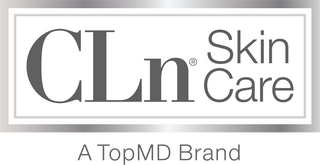
Waking up to the reality of eczema, pimples, and folliculitis can be daunting. Each condition alone can be challenging enough. But what if you find yourself dealing with all three? Understanding the unique aspects of these skin issues and learning how to address them collectively is essential. This guide provides the crucial information you need to tackle this troublesome trifecta and maintain healthy, resilient skin.
Understanding the Differences
Before diving into solutions, it's important to understand what sets these conditions apart:
Eczema: A chronic skin condition characterized by inflamed, itchy, and red patches of skin. It often results from an overactive immune response and a compromised skin barrier. People with eczema frequently experience flare-ups that can significantly impact their quality of life, especially their mental health.
Pimples: Pimples, or acne, occur when hair follicles become clogged with oil and dead skin cells. This can lead to inflammation and sometimes infection, resulting in various types of acne lesions such as whiteheads, blackheads, and cysts. Acne is most common during adolescence but can affect people of all ages.
Folliculitis: This condition involves the inflammation of hair follicles, typically caused by bacterial or fungal infections. Folliculitis can appear as small, red bumps or white-headed pimples around hair follicles, often resulting in itching and discomfort.
Can You Have All Three?
Yes, it is possible to experience eczema, pimples, and folliculitis simultaneously. Also, there is follicular eczema, a condition where eczema leads to the formation of small bumps within the hair follicles.
The presence of one condition can sometimes exacerbate the others, creating a cycle of skin issues. For instance, scratching eczema-affected areas can introduce bacteria, leading to folliculitis or acne. Similarly, treatments for one condition might irritate the skin and trigger another.
Understanding Comorbidities of Skin Conditions
Skin conditions often do not occur in isolation. Comorbidities are when two or more disorders are present in the same person, often interacting with each other. People with eczema might be more prone to skin infections due to a compromised skin barrier. Similarly, those with severe acne might experience psychological effects like anxiety or depression, which can further impact skin health. It's essential to treat both the skin condition and any associated comorbidities for comprehensive care.
Conclusion
Managing the combination of eczema, pimples, and folliculitis can be challenging, but with the right approach and products, you can achieve healthier skin. CLn’s range of specialized cleansers offers effective, gentle solutions for these conditions. Consult your dermatologist and consider incorporating CLn BodyWash, SportWash, or Acne Cleanser into your daily routine. Ready to take control of your skin health? Explore CLn products today.
Take Control of Your Skin Health
Healthier skin is within reach. Consulting with your dermatologist and integrating CLn CLn BodyWash, SportWash, or Acne Cleanser into your skincare routine can lead to more resilient skin. Ready to take control of your skin health? Explore CLn products today and take the first step towards healthier skin.
